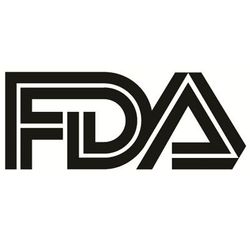
OR WAIT null SECS
COVID-19 Infection Linked to Faster Kidney Function Decline Than Pneumonia
Patients hospitalized for severe COVID-19 had an accelerated eGFR decline relative to those with pneumonia due to other infections.
New research is shining light on a significant association between severe COVID-19 infection and accelerated kidney function decline in hospitalized patients.1
Leveraging data from the Stockholm Creatinine Measurements (SCREAM) Project, the study found COVID-19 was associated with accelerated estimated glomerular filtration rate (eGFR) decline of a larger magnitude than pneumonia, suggesting the need for careful monitoring of kidney function in those hospitalized for COVID-19 infection.1
Severe COVID-19 has been linked to kidney damage, even in patients who had no underlying kidney problems before they were infected with the coronavirus. Acute kidney injury (AKI) has been hypothesized to be a marker of COVID-19 infection severity, but research considering preexisting kidney function trajectory is limited.2,3
“SARS-CoV-2 may directly or indirectly affect the kidney, with acute kidney injury observed in approximately 30% of COVID-19 hospitalizations,” Viyaasan Mahalingasivam, MPhil, an honorary consultant nephrologist at Barts Health NHS Trust, and colleagues wrote.1 “While histopathological series have raised the possibility of irreversible damage, epidemiological inquiry into long-term outcomes has been limited.”
To investigate whether kidney function decline accelerated after COVID-19 compared with other respiratory tract infections, investigators conducted a cohort study using linked data from the SCREAM Project between February 1, 2018, and January 1, 2022, in Stockholm, Sweden. All hospitalized and nonhospitalized adults in the database with ≥ 1 eGFR measurement in the 2 years prior to a COVID-19 positive test result or pneumonia diagnosis were selected.1
The primary study outcome was the mean annual change in eGFR slopes before and after each infection. The secondary study outcome was the annual change in postinfection eGFR slopes after COVID-19 or pneumonia, accounting for differences in confounders. Investigators calculated eGFR using the 2009 CKD-EPI equation without adjustment for ethnicity.1
In total, 34,565 individuals with COVID-19 and 35,987 individuals with pneumonia were included in the study. Both cohorts were predominantly female (55.6% and 53.8%, respectively) with medium baseline eGFRs of 94 (interquartile range [IQR], 79 to 107) mL/min/1.73m2 for the COVID-19 cohort and 79 (IQR, 61 to 92) mL/min/1.73m2 for the pneumonia cohort.1
Overall, 16,749 (46.5%) individuals in the pneumonia cohort required hospitalization, compared with 17,871 (13.3%) individuals in the COVID-19 cohort. Among those who were hospitalized, investigators observed a pattern of more males, lower educational level and annual income, and more comorbidity with lower baseline kidney function compared with those not hospitalized.1
Of those who were hospitalized, 19.0% with COVID-19 and 22.7% with pneumonia had concurrent AKI.1
Before COVID-19, investigators noted individuals had little change in eGFR, regardless of hospitalization status. After COVID-19, the mean decline in eGFR was 4.1 (95% CI, 3.8 to 4.4) mL/min/1.73m2 faster. Relative to nonhospitalization, eGFR decline was more pronounced after COVID-19 hospitalization (5.0 mL/min/1.73m2 faster; 95% CI, 4.5 to 5.6 vs 3.2 mL/min/1.73m2 faster; 95% CI, 2.8 to 3.6; P <.001).1
Before pneumonia, investigators observed a decline in eGFR. After pneumonia, the mean decline was 0.9 (95% CI, 0.5 to 1.3) mL/min/1.73m2 faster. Although the decline after pneumonia hospitalization accelerated by 2.4 (95% CI, 1.9 to 2.9) mL/min/1.73m2, there was no evidence of accelerated decline after nonhospitalized pneumonia (0.1 mL/min/1.73m2 faster; 95% CI, −0.7 to 0.6; P <.001).1
After adjustment for covariates, both infections demonstrated accelerated annual eGFR decline. The mean annual reduction in eGFR after COVID-19 was 3.4% (95% CI, 3.2%-3.5%), increasing to 5.4% (95% CI, 5.2%-5.6%) among those hospitalized. In the pneumonia group, the mean annual reduction in eGFR was 2.3% (95% CI, 2.1%-2.5%) and remained similar after restricting the analysis to those who were hospitalized.1
Investigators acknowledged multiple limitations to these findings, including the observational study design; the lack of information on confounders like ethnicity and body mass index; the short duration of follow-up; and the potential misclassification of certain individuals based on the severity of their infection and need for hospitalization.1
“In this cohort study, we found accelerated kidney function decline after severe COVID-19 that was of greater magnitude than after other causes of pneumonia,” investigators concluded.1 “We therefore propose that people who were hospitalized for COVID-19 receive closer monitoring of kidney function to ensure prompt diagnosis and optimized management of chronic kidney disease to effectively prevent complications and further decline.”
References
- Mahalingasivam V, Faucon A, Sjölander A, et al. Kidney Function Decline After COVID-19 Infection. JAMA Netw Open. doi:10.1001/jamanetworkopen.2024.50014
- Johns Hopkins Medicine. Coronavirus: Kidney Damage Caused by COVID-19. March 1, 2022. Accessed December 26, 2024. https://www.hopkinsmedicine.org/health/conditions-and-diseases/coronavirus/coronavirus-kidney-damage-caused-by-covid19
- National Kidney Foundation. Kidney disease & COVID-19. Coronavirus (COVID-19). Accessed December 26, 2024. https://www.kidney.org/covid-19/kidney-disease-covid-19


